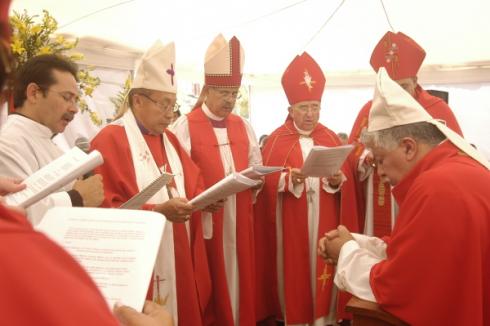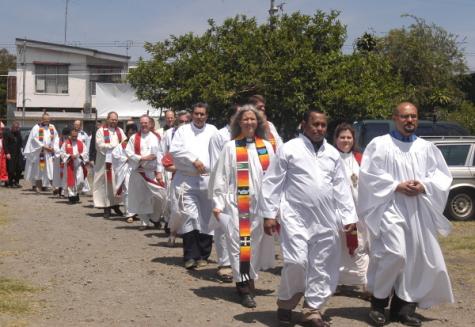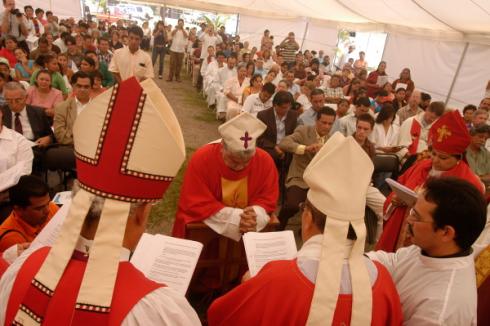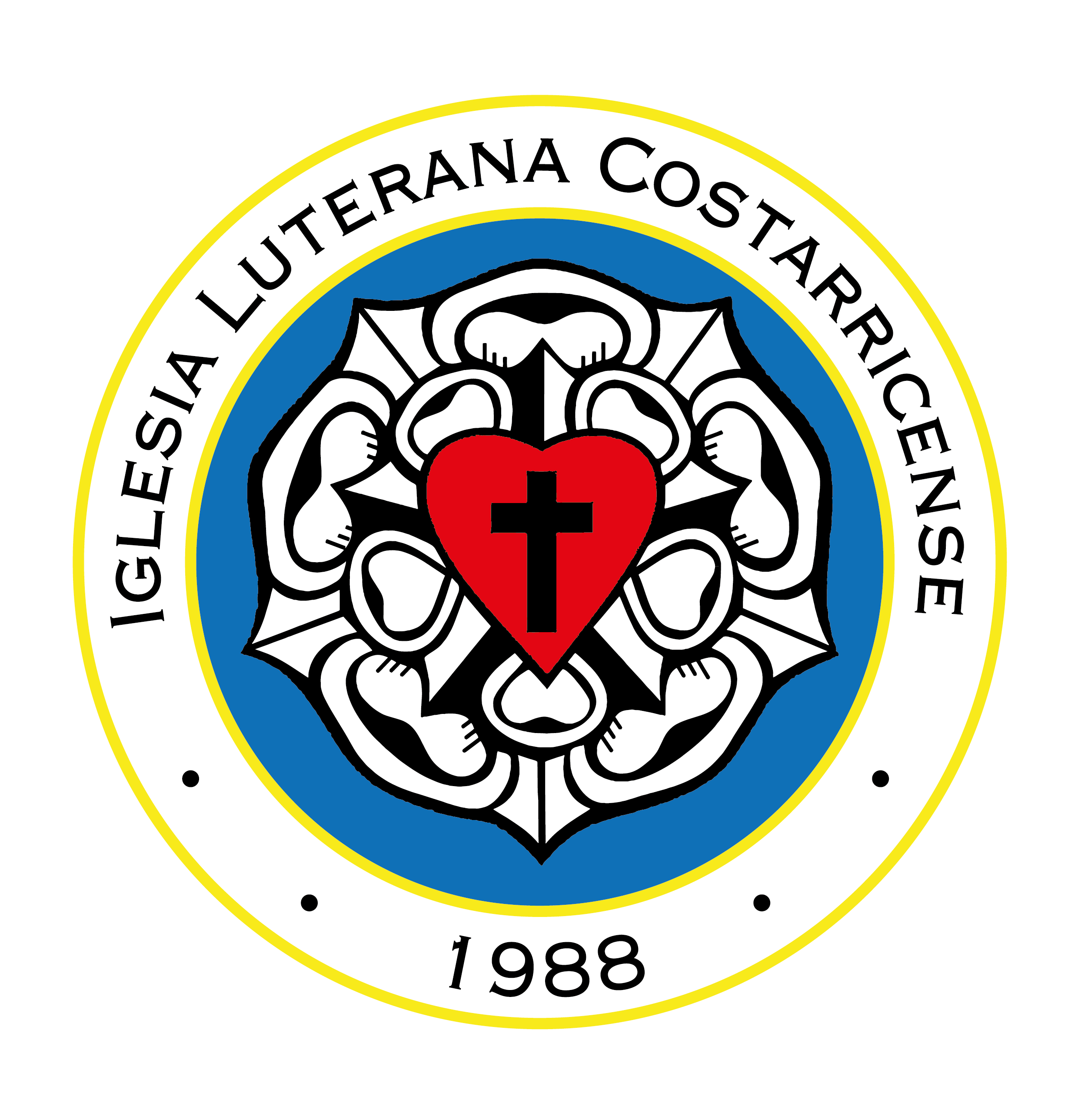 Under the framework of the 20th anniversary of the Lutheran Church of Costa Rica (ILCO), Melvin Jiménez Marín was consecrated as Costa Rica’s first Lutheran bishop on Sunday, April 27, 2008. His consecration followed the request of Lutheran communities of faith, who called a pastor of pastors and a voice within the church, aimed toward society.
Under the framework of the 20th anniversary of the Lutheran Church of Costa Rica (ILCO), Melvin Jiménez Marín was consecrated as Costa Rica’s first Lutheran bishop on Sunday, April 27, 2008. His consecration followed the request of Lutheran communities of faith, who called a pastor of pastors and a voice within the church, aimed toward society.
The consecration included the participation of more than 300 invitees, including members of ILCO’s various communities of faith, mission points and points of service around the country, as well as Lutheran bishops and delegation representatives from Sweden, Germany, the United States, El Salvador and Nicaragua. Additionally, the event included Anglican bishops from El Salvador and Costa Rica and representatives of civil society, among them the ex-presidential candidate Rolando Araya, former Costa Rican president Rodrigo Carazo and Allois Moeler of Lutheran World Service.

The service was tinged with red, the color of solemn celebrations and celebrations when martyrs are remembered. A red stole was placed on the spiritual leader, a symbol that implies carrying the responsibilities of the community on his shoulders, and the responsibilities and projects of the church. Additionally, Bishop Jiménez received the mitre, a piece which was placed over his head to symbolize the authority projected from the church. The staff also was given to him, a type of wooden cane that gives him the power to direct, guide, and illuminate the path so that his church follows and is well-led.
A pastor of pastors. Ordained as a Lutheran pastor in 1990, Melvin Jiménez has since his youth been a leader of adolescents and youth, and has devoted his life to ethical and Christian education. Since 2000 he has been Pastor-president of the Lutheran Church of Costa Rica, and this year he began serving as Moderator of the Conference of Bishops and Presidents of the Lutheran World Federation member churches of Latin America – a position which he will hold until 2011.

Deepening the holistic mission of the Lutheran Church will be one of his principle projects during his leadership. Therefore, the bishop will work so that ILCO’s tasks and projects incarnate the reality of the poor and marginalized of Costa Rica, in order to improve living conditions and build justice together with them.
In working toward building a sustainable church, Costa Rica’s first Lutheran bishop hopes to extend its presence in more than 30 communities in the country, in order to benefit more than the 5,000 people currently supported by the church. Projects in the defense of human rights and of women, indigenous peoples and people with HIV/AIDS will stay on the agenda, with intensification of new programs for children, youth and adolescents.
